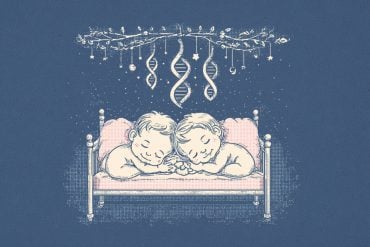Summary: Study reports 1 in 5 teens and young adults who seek treatment for alcohol and substance use disorders may have previously unrecognized social impairments characteristic of ASD.
Source: Mass General
One in five teens and young adults who seek treatment for alcohol or drug use may have traits characteristic of a previously unrecognized autism spectrum disorder (ASD), researchers at Massachusetts General Hospital (MGH) report.
They found that among patients with an average age of 18.7 years being treated in an outpatient substance use disorder (SUD) clinic, 20% had elevated scores on the Social Responsiveness Scale-2 (SRS-2), a parent- or teacher-reported measure that has been shown to reliably identify the presence and severity of social impairment among individuals along the autism spectrum, and to distinguish autism from other disorders.
The study, results of which are published in The American Journal on Addictions, is the first to look at the prevalence of previously undiagnosed autistic traits among teens and young adults with SUD, says lead author James McKowen, PhD, of the Addiction Recovery Management Service at MGH and Harvard Medical School.
“Usually studies of substance use disorder in autism are done in those with an autism diagnosis already,” he says. “We have looked at this question from the other side, asking how many people with substance use disorder have autism.”
The researchers asked parents of 69 youths reporting for the first time to a specialty outpatient psychiatric SUD clinic to fill out the SRS-2 form. The form is designed to measure an individual’s social awareness, social cognition (thinking about other people and interactions with them), social communication, social motivation, and restricted interests and repetitive behaviors.
They found that although there were few differences between those with elevated autistic trait scores and those with lower, non-autistic scores in terms of demographic or psychiatric factors, the adolescents with higher SRS-2 scores had a nearly eightfold higher likelihood of stimulant use disorder, and a fivefold higher risk for opioid use disorder.

The findings highlight the importance of assessing patients in a SUD treatment setting for autistic traits, the researchers write.
“For clinicians, the big takeaway point from this study is that we need to get better at screening and certainly training in the presence of autism spectrum disorder, because many clinicians treat substance use disorder but don’t have specialty developmental training, particularly for issues around autism,” McKowen says.
“For parents, the big takeaway is that if you suspect that your child may have an autism spectrum issue or if school personnel have suggested that your child may have autistic traits, you should certainly get that assessed, and let your clinicians know whether your child has had a prior diagnosis of ASD,” he says.
The researchers are developing a free clinical therapy protocol that can help clinicians better address the issues of autistic traits in patients with SUD.
Study co-authors include Diana Woodward, BA, Maura DiSalvo, MPH, Vinod Rao, MD, PhD, Julia Greenbaum, BA, Gagan Joshi, MD, and Timothy E. Wilens, MD, from MGH, and Amy M. Yule, MD, from Boston University School of Medicine and Boston Medical Center.
Funding: The study was supported by grants from the Demarest Lloyd, Jr. Foundation.
About this ASD and addiction research news
Author: Noah Brown
Source: Mass General
Contact: Noah Brown – Mass General
Image: The image is in the public domain
Original Research: Closed access.
“Characterizing autistic traits in treatment-seeking young adults with substance use disorders” by James McKowen et al. American Journal on Addiction
Abstract
Characterizing autistic traits in treatment-seeking young adults with substance use disorders
Background and Objectives
Recent work highlights an increase in the overlap of autism spectrum disorder (ASD) and substance use disorder (SUD). Little is known about the presence of ASD symptoms in SUD-treatment-seeking populations.
Methods
The informant-rated Social Responsiveness Scale-2 (SRS-2) was completed at intake to an outpatient SUD clinic for youth aged 16–26 (N = 69). Comparisons were made between those with elevated SRS-2 scores on demographic, psychiatric, and substance use variables.
Results
Parents of sixty-nine patients with SUD completed the SRS-2. Fourteen (20%) (average age 18.7 ± 2.5) had elevated SRS-2 Total T-scores (≥66) and 55 (average age 18.1 ± 2.8) had non-clinical SRS-2 Total T-scores. There were few differences between groups; however, those with elevated SRS-2 Total T-scores were more likely to have a stimulant use disorder (odds ratio [OR] = 7.59, 95% confidence interval [CI] = 0.77, 101.88; p = 0.05) or an opioid use disorder (OR = 5.02, 95% CI = 0.59, 43.27; p = 0.08) than patients with normal SRS-2 Total T-scores as well as alcohol use in the week prior to intake.
Discussion and Conclusions
A significant proportion of treatment-seeking SUD outpatients suffer from clinically elevated autistic traits. These findings highlight the importance of assessing for autistic traits in SUD treatment settings yet additional research is needed to determine if these findings are specific to the presence of ASD or secondary to sequelae of specific SUD presentations.
Scientific Significance
This study is, to our knowledge, the first to have examined the prevalence, morbidity, or clinical characteristics, associated with ASD symptoms in a SUD-specific population.






